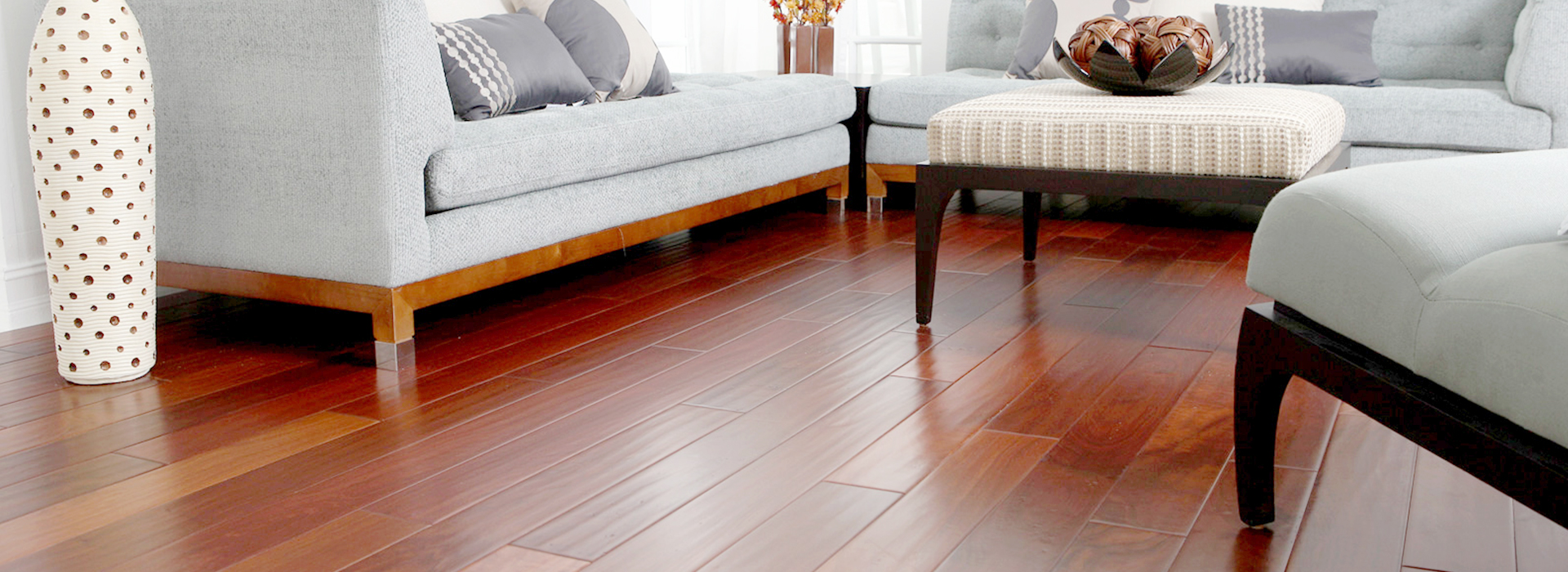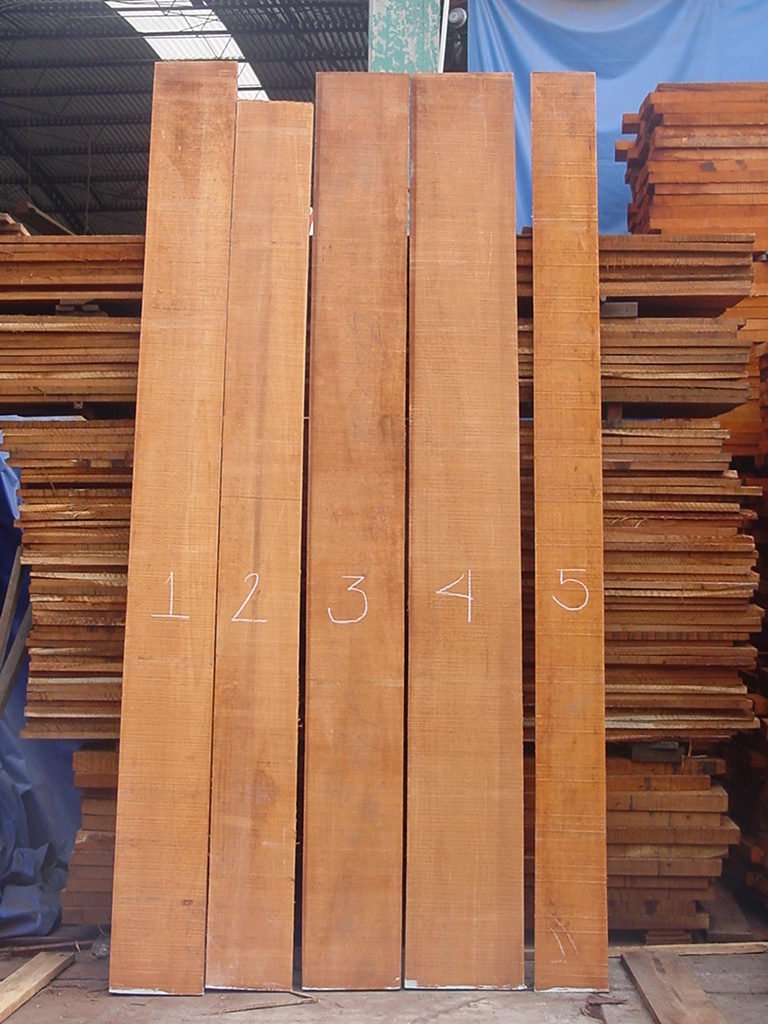
When it comes to home renovation projects, choosing a hardwood floor is the most important decision you’ll have to make. It underpins everything else.
With so many different species to choose from, not to mention their incredibly diverse price range, this very basic decision can be quite a burden to the already stressed and busy homeowner.
With affordable oak and bamboo flooring taking over the market today, people often focus on one of these types of hardwood, failing to realise that many other wood species are available.
Here at Martin Allen, where we deal with hardwood every day, we believe it is important that our clients know more about the wood species we offer.
That’s why we’ve created a short series of articles to introduce our former, current and future customers to the three most popular wood species available today – mahogany, oak and walnut.
True Mahogany
Mahogany is a straight-grained timber from three different wood species belonging to the genus Swietenia: Honduran, West Indian, and Swietenia humilis.
Honduran mahogany is the most widespread of the three species, spreading from Mexico to Southern Amazonia in Brazil.
True mahogany timber ranges from a light reddish brown to an intense chocolate hue and is one of the hardest and most durable timbers you can find.
All these types of mahogany are considered endangered species and are illegal to harvest. Most of the timber labelled mahogany today belongs to an entirely different genus of trees.
Santos Mahogany
Most people in the industry refer to mahogany as Santos Mahogany, a type of hardwood belonging to the Myroxylon genus. Native to South America and most widespread in El Salvador, Balsam trees, as they’re often called, are an affordable and sustainable alternative to true mahogany.
Apart from the unique reddish brown colour, Santos Mahogany bears no further resemblance to its genuine counterpart. It is a hard, dense wood that often features fine, tight, and interlocked grains.
Wood’s hardness and density might make it a bit harder to work with, requiring sharp tools and a special approach to glueing.
But those characteristics make mahogany one of the toughest, most durable hardwood species available.
The hot, humid climate mahogany trees grow in makes the harvested timber much less prone to shrinkage and movement. One of the main drawbacks of hardwood flooring, in general, is the wood’s natural tendency to react to temperature changes. Continually shrinking and expanding can cause the boards to bend, split and even crack.
Thanks to mahogany’s diffuse-porous nature, meaning that it forms vessels of roughly the same radial diameter throughout the growing season, the timber doesn’t succumb to changes in temperature or moisture.
However, you should always remember that no matter how hard and durable a hardwood is, failing to maintain it properly will almost certainly result in permanent damage to your floor.
Mahogany Flooring
Along with almost every species of hardwood we offer, mahogany is also available in the two most common types of floorboards – solid and engineered hardwood.
As their name suggests, solid floorboards consist entirely of a solid piece of hardwood. Solid wood floorboards’ main benefits over other boards are their durability and longevity. Being comprised of a single, solid piece of hardwood, solid floorboards can be sanded and refinished as many times as necessary. Solid hardwood tends to move a bit, which can cause microscopic cracks on its surface and can often succumb to damage from scratches and dents. Having the floor sanded and refinished with a fresh coat of lacquer or oil will breathe new life into it without the need to redo the entire floor.
Solid wood also tends to darken with time. While this can pose a problem with certain hardwood and light finishes, it’s one of the main reasons mahogany remains so popular. Hardwood’s natural reddish hue will darken over time, the colour slowly deepening and the grains becoming less pronounced until it reaches a sophisticated dark brown with reddish hues.
On the other hand, engineered wood floorboards are composite materials, meaning they’re made from several constituent materials with varying properties.
However, unlike other composite materials, engineered wood boards are made from genuine hardwood. Multiple thin mahogany boards are glued together, each layer positioned at a 90-degree angle to the one below it. The topmost layer of the hardwood is the thickest and also the layer where the natural colour and grain of the hardwood are visible.
While we won’t argue with the elegance and timelessness of solid hardwood floorboards, the benefits of engineered boards often surpass them—even when it comes to exotic species such as mahogany.
All the incredible characteristics of mahogany are perfected and enhanced when made in the shape of engineered boards.
The wood’s natural hardness and density become even more pronounced, and its resistance to heat and moisture is enhanced due to the many layers the board is made from. That makes engineered mahogany boards suitable for use in non-traditional rooms such as basements, bathrooms, toilets, kitchens, pantries, etc.
Installing solid mahogany boards can be time-consuming. Wood’s hardness and density might make it difficult to cut and saw, requiring special tools and skills.
With engineered boards, the installation process is smooth and straightforward. The floorboards come fitted with joints and are installed by interlocking them.
Sustainability of Mahogany
One of the biggest problems woodworking and flooring professionals face is the sustainability of the timber we use.
Exotic hardwood flooring is considered the crown jewel of every luxury home, but many of these once-abundant species have become endangered.
Being illegal to harvest from the wild, mahogany plantations are now widespread throughout the southern hemisphere.
But, as many of those plantations are located in the developing world, a combination of a lack of resources and education often leads to unsustainable and harmful deforestation.
You need to look out for a few things to avoid getting your mahogany floor from these sources.
First, always leave everything hardwood related to the professionals, especially when it comes to exotic flooring.
If you’re not sure where to turn, give us a call at 01162 165 107, and we’ll handle all your hardwood flooring woes, from giving you an on-site quote to cleaning up after everything’s been installed.
Getting your wood from a safe and reliable source is easier when you leave it to our flooring experts.
Another thing you should look out for when choosing mahogany is the price.
If it’s suspiciously cheap for an exotic hardwood species, it’s probably because it came from a rather suspicious supplier.
However, a pricey floor doesn’t necessarily equal a high-quality floor, and many quality, durable options are in the middle of the price range.
It’s also worth knowing that both FSC® and PEFC™ offer extensive databases containing all the suppliers and producers carrying their sustainability certificates.
If you have any doubts about the origin of your mahogany, a quick search through one of these lists will answer any questions you might have.
Our Conclusion
While true mahogany might be too rare and exotic for even the most luxurious residency, it doesn’t mean you should compromise on the look and feel you want for your home.
We call mahogany an incredible wood species – beautiful, elegant, timeless, and durable.
Whether you choose a traditional solid floorboard or the more technologically advanced engineered one, installing mahogany hardwood flooring means investing in a future with both style and grace.
- By: Andjela Jovetic
- Tags: engineered wood, Mahogany, sustainability
- Category: Wood Flooring, Wood Species
- 0 comment





Leave a Reply